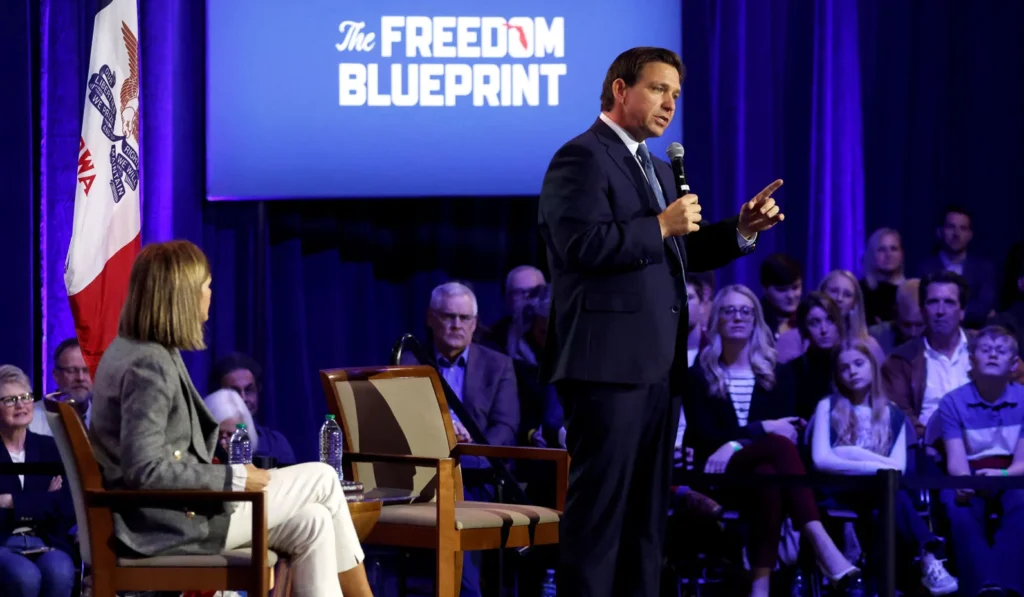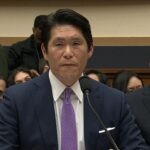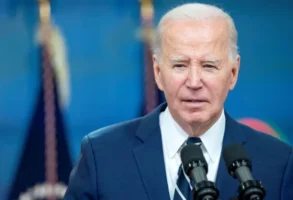
Published May 23, 2023
The South Carolina legislature last week took a major step toward enacting a bill that would prohibit most abortions at around six weeks into pregnancy, after a fetal heartbeat can be detected. The bill passed the state house and is widely expected to make it through the state senate as well, giving Republican governor Henry McMaster the chance to sign it into law.
If the policy does take effect, it will make South Carolina the second of the early primary states to enact a heartbeat bill after Iowa, whose bill has been tied up in litigation. (Just last month, Iowa’s Republican governor, Kim Reynolds, asked the state supreme court to reinstate the law; a decision is pending.)
Republican momentum in favor of protective pro-life laws suggests that former president Donald Trump is at odds with the GOP in these early nominating states when it comes to abortion. In a recent interview, Trump claimed that many in the pro-life movement view Florida’s recently enacted heartbeat bill as “too harsh.” “A lot of people don’t even know if [Governor Ron DeSantis] knew what he was doing” when he signed the bill, Trump said.
Despite Trump’s criticism, Governor DeSantis has stood by his choice to sign the policy into law, saying he “was proud to do it” and noting that Trump has yet to say whether he would have signed the bill had he been in DeSantis’s position. Leaders from top pro-life groups have publicly sided with DeSantis, noting that a majority of likely voters in Florida say they support the heartbeat law.
Meanwhile, Trump has continued to dodge questions about how he would handle abortion policy if he were elected president a second time. Visiting Iowa in March, Trump refused to divulge whether he would support a federal pro-life law, saying only, “We’re looking at a lot of different things.” During his recent CNN town hall in New Hampshire, he sidestepped the issue again, claiming repeatedly that he plans to “do what’s right.”
In April, the Trump campaign issued a statement asserting, “President Donald J. Trump believes that the Supreme Court, led by the three justices which he supported, got it right when they ruled this is an issue that should be decided at the state level.”
In response, Marjorie Dannenfelser, the president of Susan B. Anthony Pro-Life America, issued a stern rebuke. “President Trump’s assertion that the Supreme Court returned the issue of abortion solely to the states is a completely inaccurate reading of the Dobbs decision and is a morally indefensible position for a self-proclaimed pro-life presidential candidate to hold,” she wrote. She also said at the time that her group “will oppose any presidential candidate who refuses to embrace at a minimum a 15-week national standard to stop painful late-term abortions while allowing states to enact further protections.”
More recently, however, Dannenfelser has met with Trump, along with South Carolina senator Lindsey Graham, the sponsor of a federal ban on abortion after 15 weeks. In a subsequent statement, she seemed to suggest that the former president had expressed more openness to a federal pro-life law, having stated “that any federal legislation . . . would need to include the exceptions for life of the mother and in cases of rape and incest.”
Earlier this year, Trump attempted to blame the pro-life movement for the GOP’s underperformance in last year’s midterms. “It was the ‘abortion issue,’ poorly handled by many Republicans, especially those that firmly insisted on No Exceptions, even in the case of Rape, Incest, or Life of the Mother, that lost large numbers of Voters,” he wrote in a post on Truth Social.
A more sophisticated look at the midterm results suggests that support for pro-life policies in fact can help win elections if Republicans run solid candidates who are willing to defend such policies. In five major gubernatorial races — Florida, Georgia, Ohio, Oklahoma, and Texas — Republican governors who signed pro-life laws in their previous term won reelection by wide margins. None of them shied away from their pro-life stances, despite facing significant criticism from Democratic candidates and media outlets — and, subsequently, from some in the GOP, including Trump.
Thus far, Republicans at the state level appear to think DeSantis has chosen the correct approach. National GOP candidates must make a choice as to whether they will treat the pro-life cause like an albatross or like a central component of a winning agenda. And pro-life voters should pay close attention to what they decide.
Alexandra Desanctis is a fellow at the Ethics and Public Policy Center and a contributing writer at National Review.
EPPC Fellow Alexandra DeSanctis writes on culture and family issues, with a particular focus on abortion policy and pro-life advocacy, as a member of the Life and Family Initiative.











